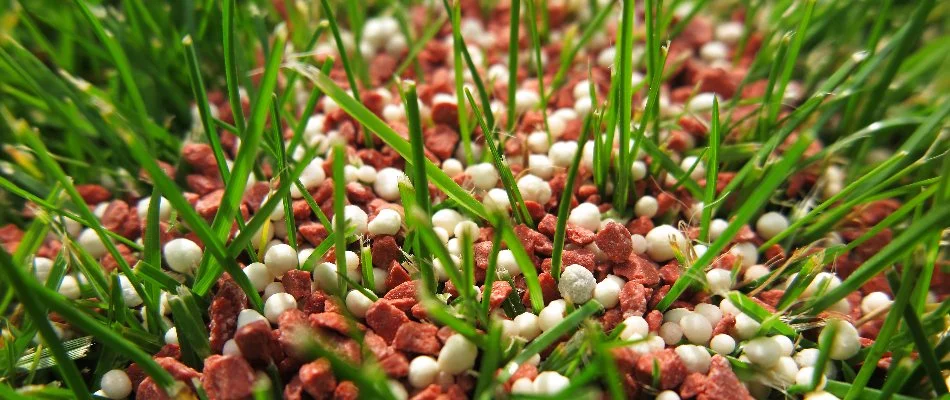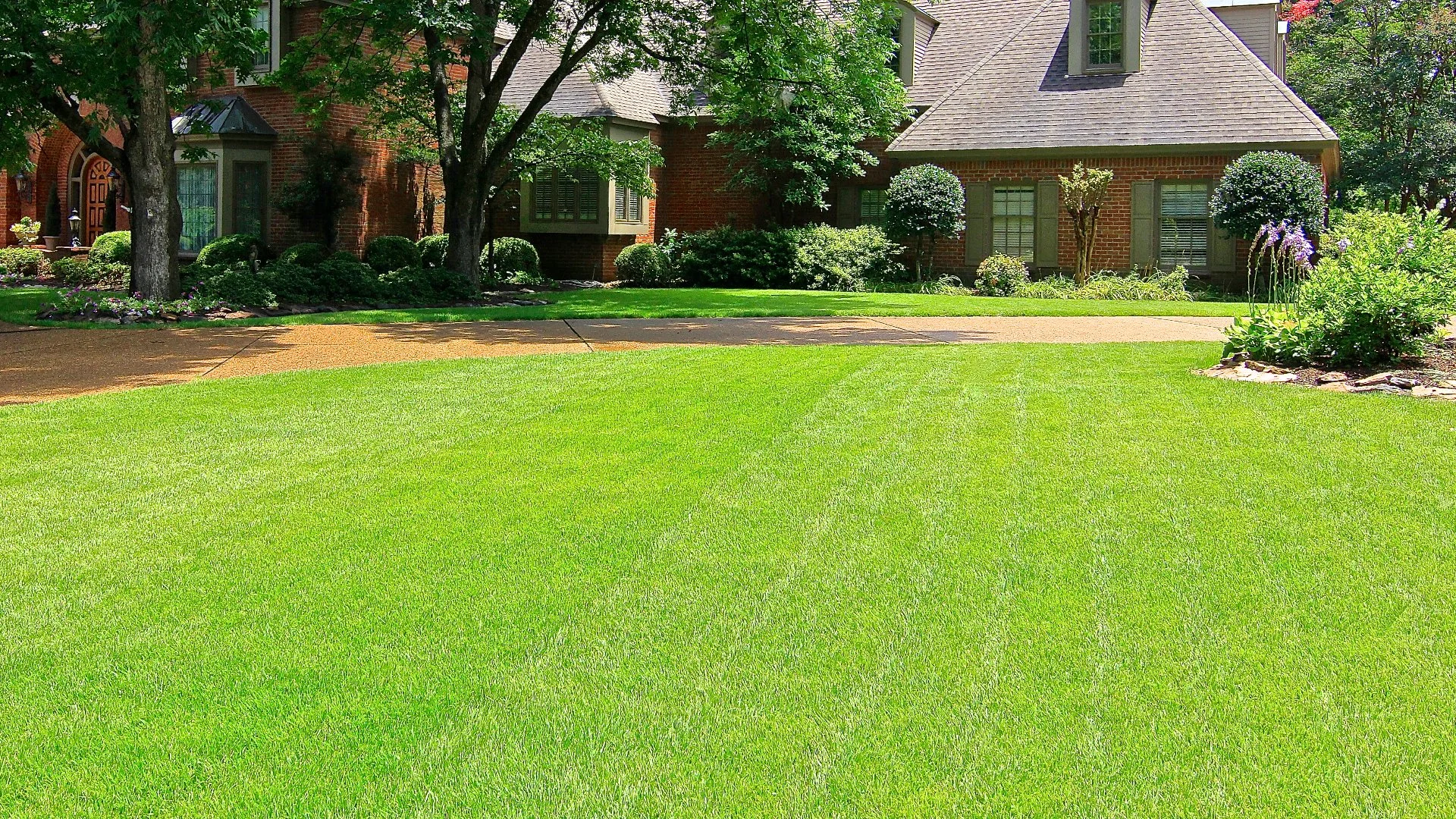Lawn Fertilization Service in Memphis, TN & Surrounding Cities Like Collierville & Germantown
Our fertilization program includes pre- and post-emergent weed control and lime treatments!
If you want to turn your dream lawn into a reality, you've come to the right place! Here at Herbi-Systems, we offer a 7-round lawn fertilization program that includes routine applications throughout the year to provide your grass with the nutrients it needs to bolster healthy, beautiful growth. But wait, that's not all - this program also includes pre- and post-emergent weed control and lime treatments to keep it weed-free and balance your soil's pH. Additionally, we prioritize safety and use EPA-certified treatments that are pet- and human-safe; we only advise that you wait until they're dry before resuming your normal activities on your lawn!
We offer our lawn fertilization service to residential and commercial properties, along with HOAs, in Memphis, Collierville, Germantown, TN, and throughout the surrounding areas.
Our Lawn Fertilization Schedule

We want to ensure your lawn has a consistent supply of nutrients to stay healthy and vibrant. To do this, we've designed a 7-round lawn fertilization program that includes multiple treatments throughout the year. However, that's not all - this program also comes with pre- and post-emergent weed control treatments to prevent and eliminate pesky weeds, plus lime applications to balance your soil's pH! The fertilization schedule we follow is below.
- Round 1 (January - February): Our first visit of the year includes fertilization to start helping your lawn transition out of dormancy. We'll also apply a pre-emergent weed control treatment to get ahead of spring weeds and post-emergents to eliminate any existing growth.
- Round 2 (February - April): Our team will fertilize your turf again to help it start the new growing season on the right foot. We'll also administer another pre- and post-emergent treatment to stop weeds from sprouting through the surface and tackle any that already have.
- Round 3 (April - June): During this round, we'll apply a fertilization treatment to help prepare your grass for the warmer months ahead, then post-emergents to ensure it stays weed-free.
- Round 4 (June - August): We will fertilize again to replenish its nutrients and give it the best chance of withstanding the hot summer weather. We'll also spot-spray any existing weeds.
- Round 5 (August - September): Our fifth visit includes fertilization and post-emergent weed control to eliminate any active weeds.
- Round 6 (September - November): We'll administer another pre-emergent treatment to build off the last and ensure winter weeds don't get the upper hand, plus fertilization and post-emergent applications.
- Round 7 (November - January): Our final visit of the year includes a lime treatment to help balance your soil's pH and improve your turf's nutrient uptake. If needed, we'll also spot-spray any weeds.
Our Lawn Fertilization Treatments Are Pet- & Human-Safe Once They Dry
Safety is our top priority here at Herbi-Systems, which is why we use lawn fertilization treatments that are EPA-certified; this means they contain safer ingredients for pets, humans, and the environment. We will advise that you wait to resume your normal activities on your lawn until they're dry, but once they are, you and your furry friends are safe to do so! It depends on the weather conditions on the day of application, but you can always ask our crew how long you should wait before using it again.
Call us today to sign up for our lawn fertilization service!
At Herbi-Systems, we offer a lawn fertilization service to nourish your turf and keep it in its best shape year-round! This service is available to residential and commercial properties and HOAs in Memphis, Collierville, Germantown, TN, and other nearby areas. Call us today at (901) 382-5296 to sign up for our lawn fertilization service!


